 In 2008-2009, we asked trans and gender-nonconforming people to fill out the National Transgender Discrimination Survey and let us know about their experiences. My organization, the National Center for Transgender Equality (along with the National LGBTQ Task Force) hoped we might get 1,500 or so people to help us out. We also imagined the survey would be useful somehow. By the time we issued the report "Injustice at Every Turn" in 2011, we knew that over 6,400 people had participated and we would soon see that the survey was incredibly useful way beyond our expectations. In fact, it was an absolute game changer for trans people -- at least for our public education and policy change efforts. It has mattered so much, and all due to the 6,400 people who stepped up, joined in, and took the survey.
In 2008-2009, we asked trans and gender-nonconforming people to fill out the National Transgender Discrimination Survey and let us know about their experiences. My organization, the National Center for Transgender Equality (along with the National LGBTQ Task Force) hoped we might get 1,500 or so people to help us out. We also imagined the survey would be useful somehow. By the time we issued the report "Injustice at Every Turn" in 2011, we knew that over 6,400 people had participated and we would soon see that the survey was incredibly useful way beyond our expectations. In fact, it was an absolute game changer for trans people -- at least for our public education and policy change efforts. It has mattered so much, and all due to the 6,400 people who stepped up, joined in, and took the survey.
The information we compiled in 2011 is outdated now, however, because so much has changed for trans people, but there is still a lot of work to do to achieve equal rights. This is why we are redoing the survey, now called the 2015 U.S. Trans Survey. But wow, have these numbers been important.

Four years after the findings were released, almost every news story written about trans people includes information from the survey. It has been cited over 15,000 times in the media. Just imagine that. The survey is how we were able to document a lot of what we already knew about trans experiences in the U.S. -- from the disrespect, discrimination, and violence trans people face to the astounding resilience and support many of us have had throughout our lives. We've all heard the survey's numbers: more than 90 percent of us have faced job discrimination or hid who we were to avoid discrimination; 20 percent have been turned away by a medical provider; we are four times more likely than other people to live on less than $10,000 per year. Significantly, the survey was the first documentation we had of what we all knew -- that transphobia, when combined with racism, often leads to more severe and devastating experiences for trans people of color.

Before the survey, policy advocates had to try to tell policymakers that trans people needed help without being able to show proof of the help they needed. When we were asked about our experiences, we were limited to telling personal stories. These were very powerful, but are even more powerful when shown to be an example of a documented reality for trans people as a whole. In other words, trans people could finally say, "This experience isn't just mine; I am part of a group that faces something similar that policymakers must help fix." It has been an unquestionable game changer in how so many of us talk about our lives.

At the moment I understood that the survey had far exceeded what I had imagined, just months after the findings were released, I was in San Francisco at the Trans Health Summit, where I was on an opening keynote panel. The speaker before me from a federal health agency based his entire presentation on the survey. The findings -- especially the most stark numbers -- had gotten around quickly to researchers and policymakers, and were already changing minds, hearts, and policy.
I am still so proud to have been a part of that survey, along with others from NCTE, from the National LGBTQ Task Force and Jody Herman and Sue Rankin, who are among the preeminent researchers on trans lives. I had a 20-year or so career in survey research before I came to NCTE to work for trans people, and I am not prouder of any of the hundreds of other surveys I have been involved with.

The truth is, though, the numbers are quickly getting stale. They are more than five years old, and so much has happened in those five years. While there is little doubt that there are aspects of society that are harder on trans people than on most others, it is equally true that we are quickly making policy changes and cultural progress that likely shadows the survey findings. We need to redo it, and we hope folks will help us with their time as generously they did last time.
We have renamed the survey the 2015 U.S. Trans Survey to reflect some important changes. First, this survey will need to be updated at least every five years to make sure we understand where we are. Second, calling this survey a U.S. survey rather than a "national" survey distinguishes this survey from national surveys done in other countries. Finally, removing the word "discrimination" from the title reflects our belief that the resilience that trans people show is as important as the discrimination that is too often thrown our way.

We really want all trans people to know that the 2015 U.S. Trans Survey is your survey. The National Center for Transgender Equality is administering the survey, but this survey is by and for trans people. When trans people give their time and effort to a project such as a survey, we need to know that the results will be used to help us, that the results will be available to all trans people, to be used in whatever effort trans people are working on to make trans lives safer and better. NCTE is committing to make the findings broadly available as soon as we can.

I hope that you will consider helping us get the word out about the 2015 U.S. Trans Survey. And if you are a trans, genderqueer, or nonbinary person, we hope you consider being counted and completing the survey yourself.
 MARA KEISLING is the founding executive director of the National Center for Transgender Equality.
MARA KEISLING is the founding executive director of the National Center for Transgender Equality.
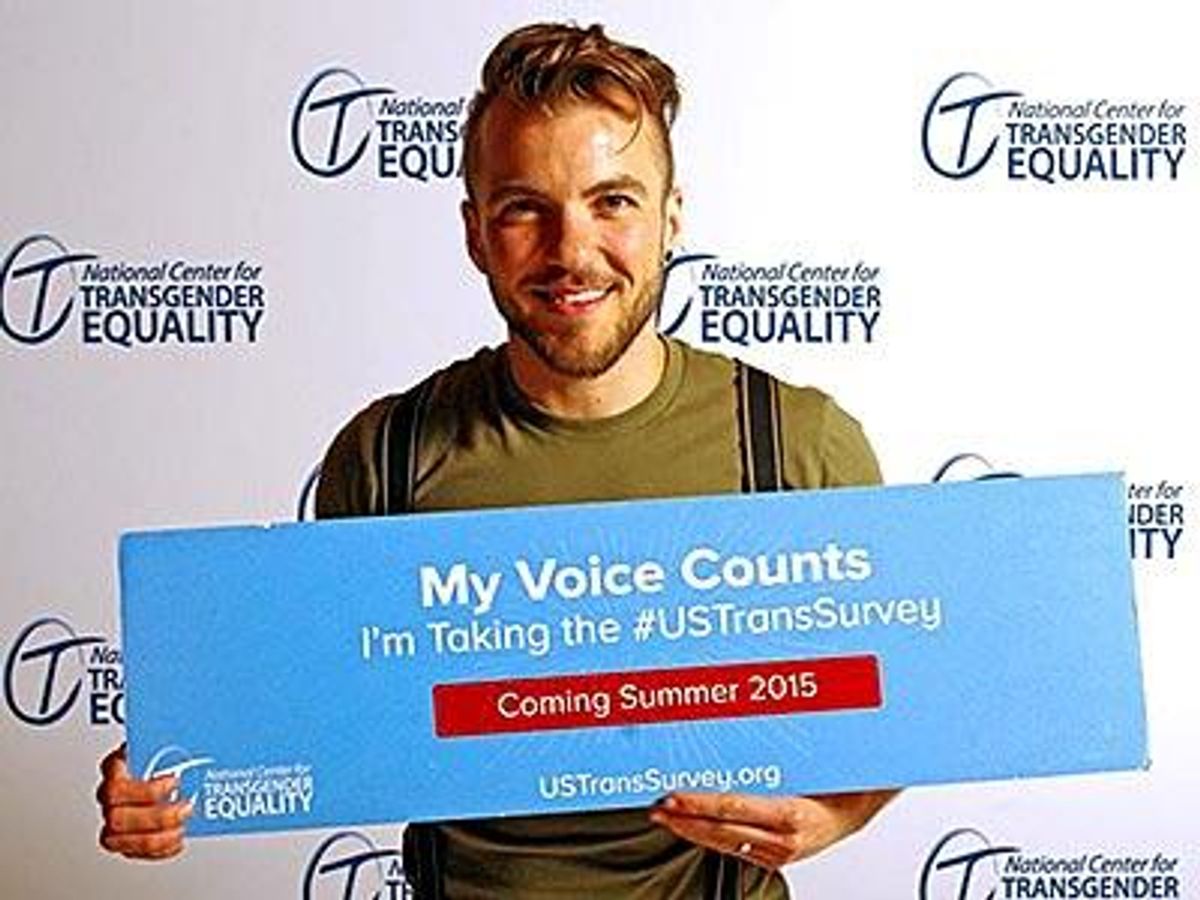

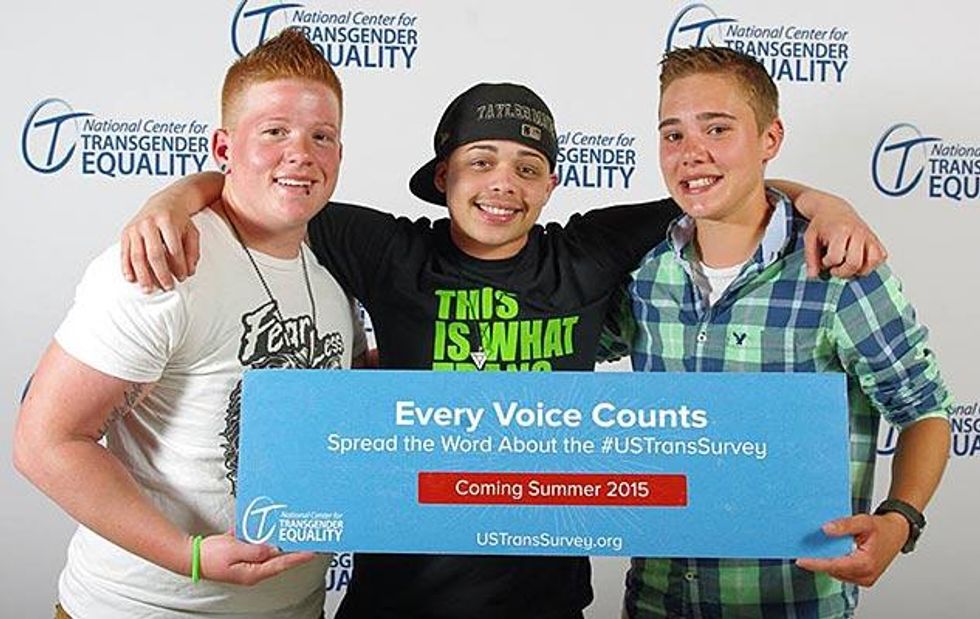 In 2008-2009, we asked trans and gender-nonconforming people to fill out the National Transgender Discrimination Survey and let us know about their experiences. My organization, the National Center for Transgender Equality (along with the National LGBTQ Task Force) hoped we might get 1,500 or so people to help us out. We also imagined the survey would be useful somehow. By the time we issued the report "Injustice at Every Turn" in 2011, we knew that over 6,400 people had participated and we would soon see that the survey was incredibly useful way beyond our expectations. In fact, it was an absolute game changer for trans people -- at least for our public education and policy change efforts. It has mattered so much, and all due to the 6,400 people who stepped up, joined in, and took the survey.
In 2008-2009, we asked trans and gender-nonconforming people to fill out the National Transgender Discrimination Survey and let us know about their experiences. My organization, the National Center for Transgender Equality (along with the National LGBTQ Task Force) hoped we might get 1,500 or so people to help us out. We also imagined the survey would be useful somehow. By the time we issued the report "Injustice at Every Turn" in 2011, we knew that over 6,400 people had participated and we would soon see that the survey was incredibly useful way beyond our expectations. In fact, it was an absolute game changer for trans people -- at least for our public education and policy change efforts. It has mattered so much, and all due to the 6,400 people who stepped up, joined in, and took the survey.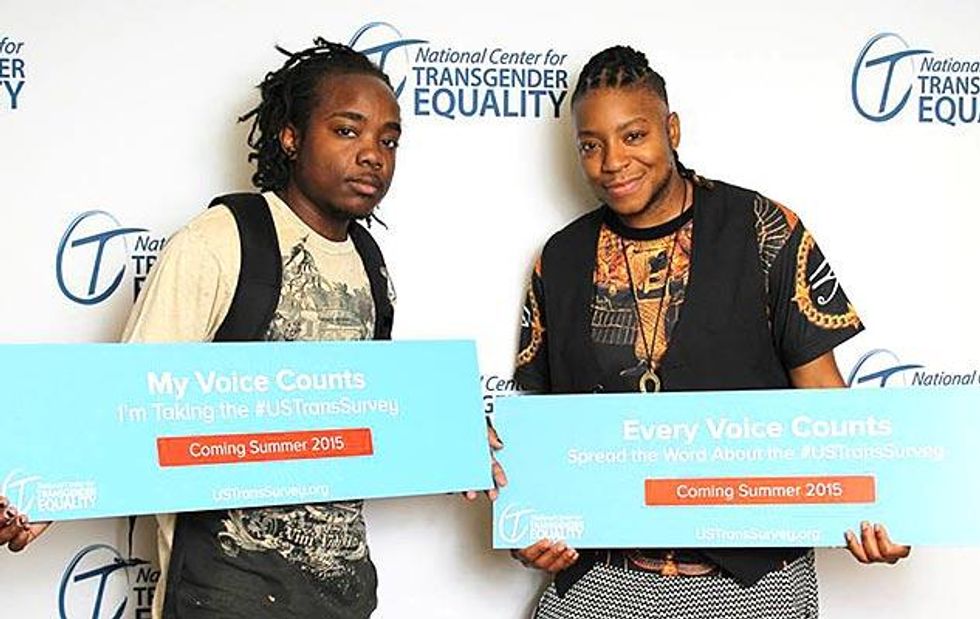
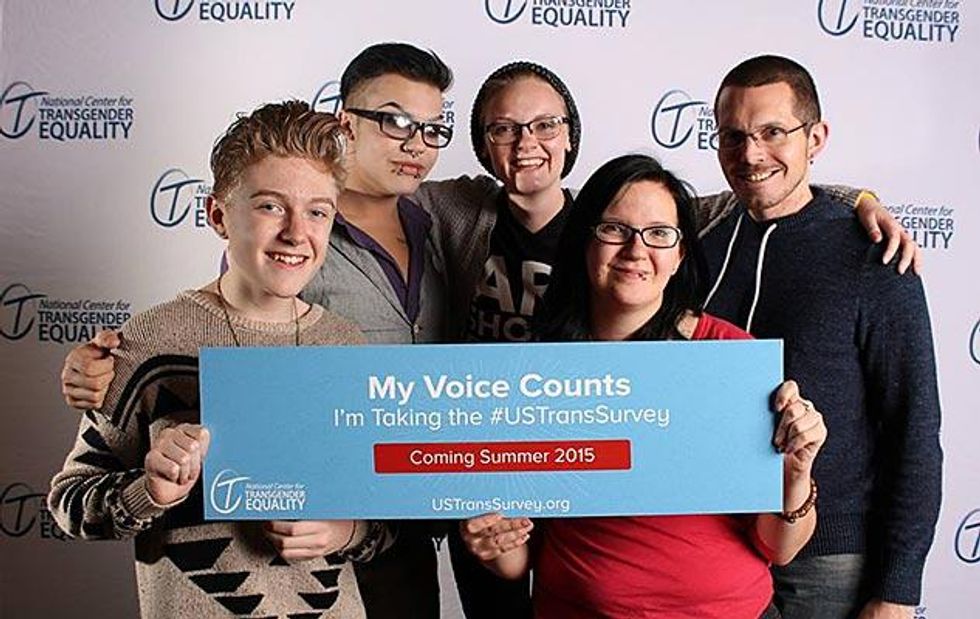
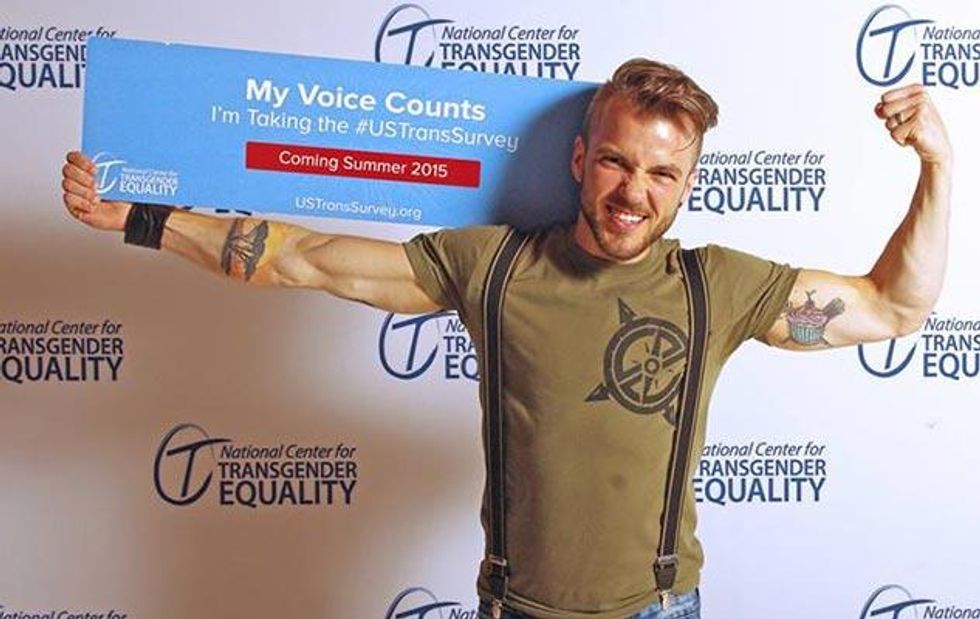
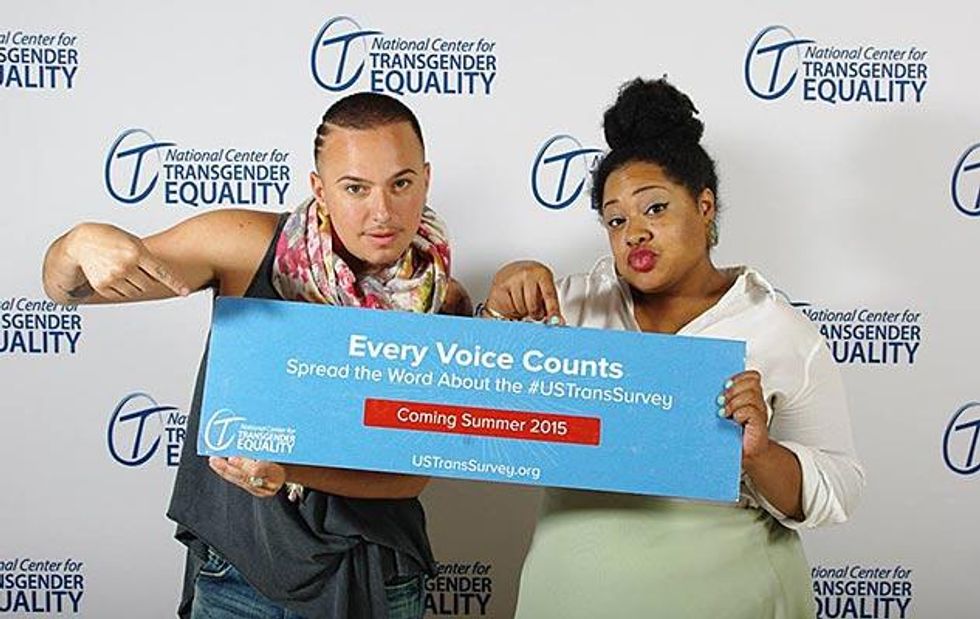
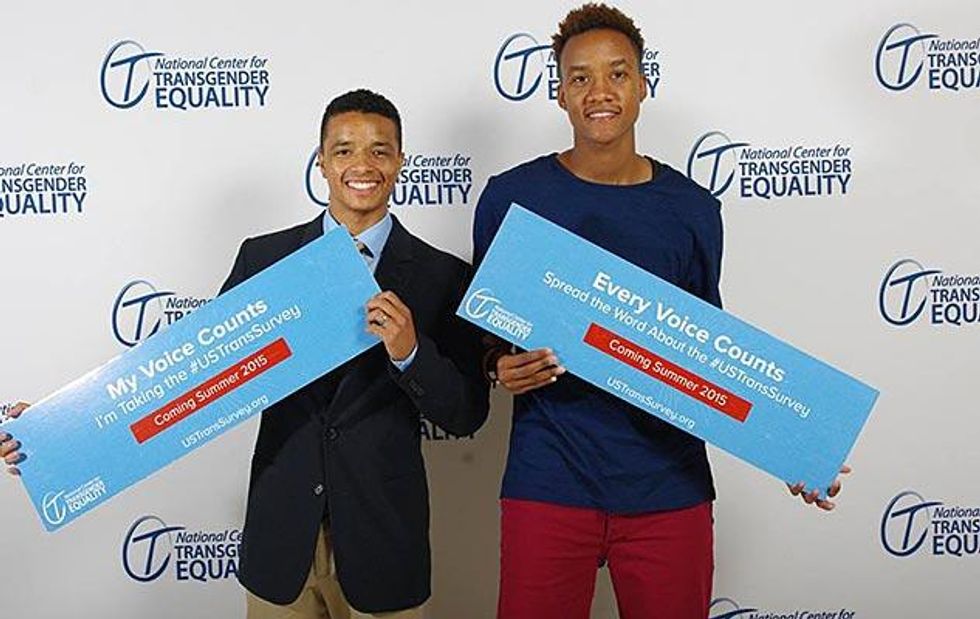
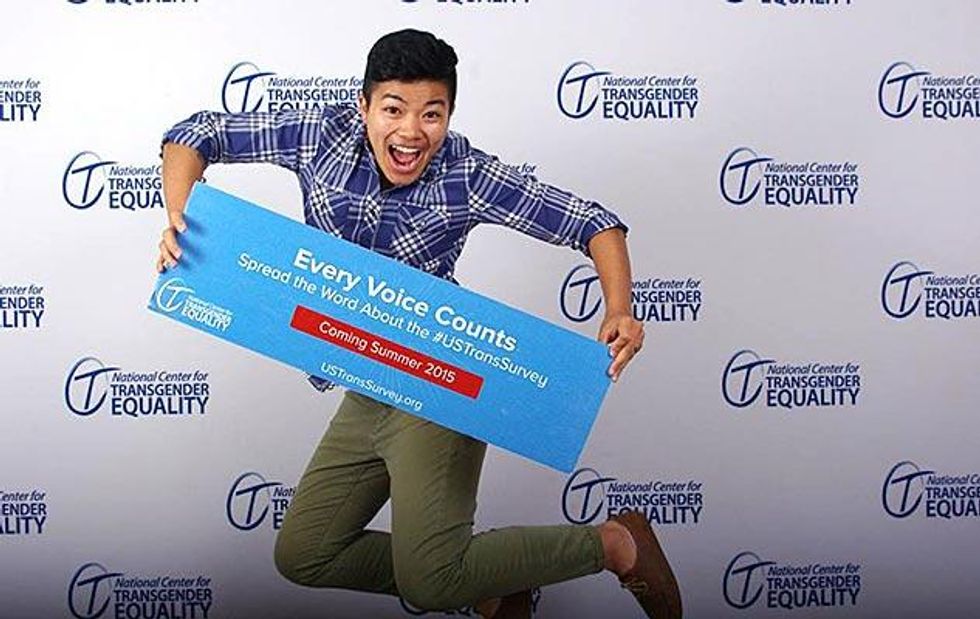
 MARA KEISLING is the founding executive director of the
MARA KEISLING is the founding executive director of the 
















































































